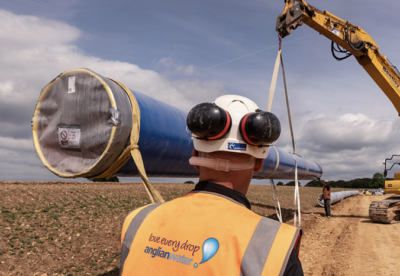The jump in pre-tax profit to £5.8m from £1.3 m previously out of revenue ahead 5% at £87m was helped by improved factory operating efficiency and a move to larger more complex projects.
Mark Smith, chief executive officer, said that market remained challenging, but Billington had secured significant contracts at improved margins for the year ahead, and could see a good pipeline of further opportunities.
Smith said: “While macroeconomic headwinds are likely to remain for some time, particularly with regard to material availability, energy costs, price volatility and continuing inflationary pressures, we are seeing a consistent stream of opportunities at more attractive margins and have a very healthy order book.
“The benefits of the group’s investment in efficiency improvements and people, coupled with its strong market position, is enabling the group to achieve higher than historic margins and to focus on those sectors that can deliver better returns.”
Larger than average contracts Billington bagged last year included two energy from waste facilities and several large industrial production/warehousing projects.
Smith added: “We are also seeing other opportunities particularly in large retail distribution warehouses, data centres, ‘Gigafactories’, food processing developments, rail infrastructure and stadium developments, together with a return of some commercial office development projects and for projects outside of the UK.”
During the year, Billington temporarily utilised a proportion of its cash resources to maximise the margin available on contracts via the stockpiling of steel when appropriate to take advantage of attractive supply and pricing opportunities.
Smith said that Billington expected inflationary pressures and the restrictions in the supply of certain steel products to continue for some time, although it anticipated pressures would ease through 2023.
For the UK as a whole, structural steelwork consumption is expected to reduce 3% this year to 867,000 tonnes, after a 12% rise last year.
It is then expected to modestly expand by 0.5% to 871,000 tonnes in 2024.

















































.gif)








